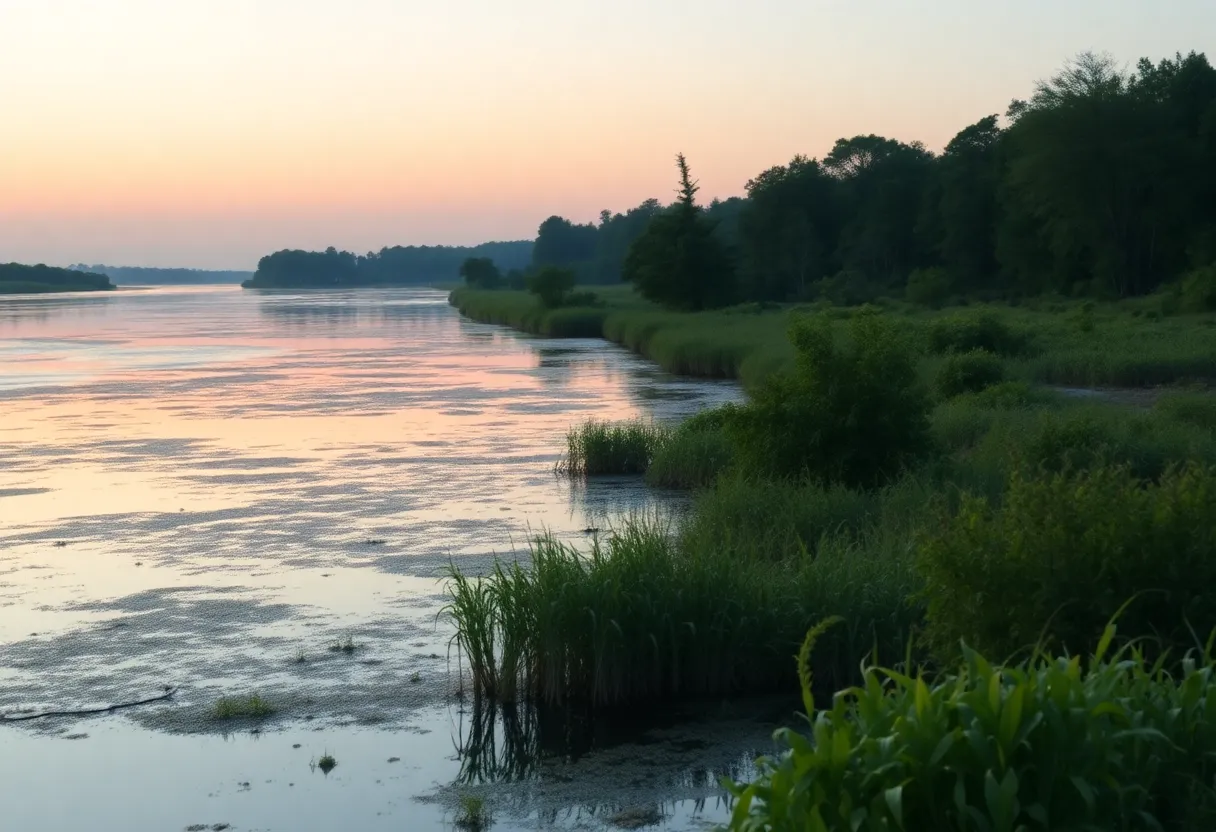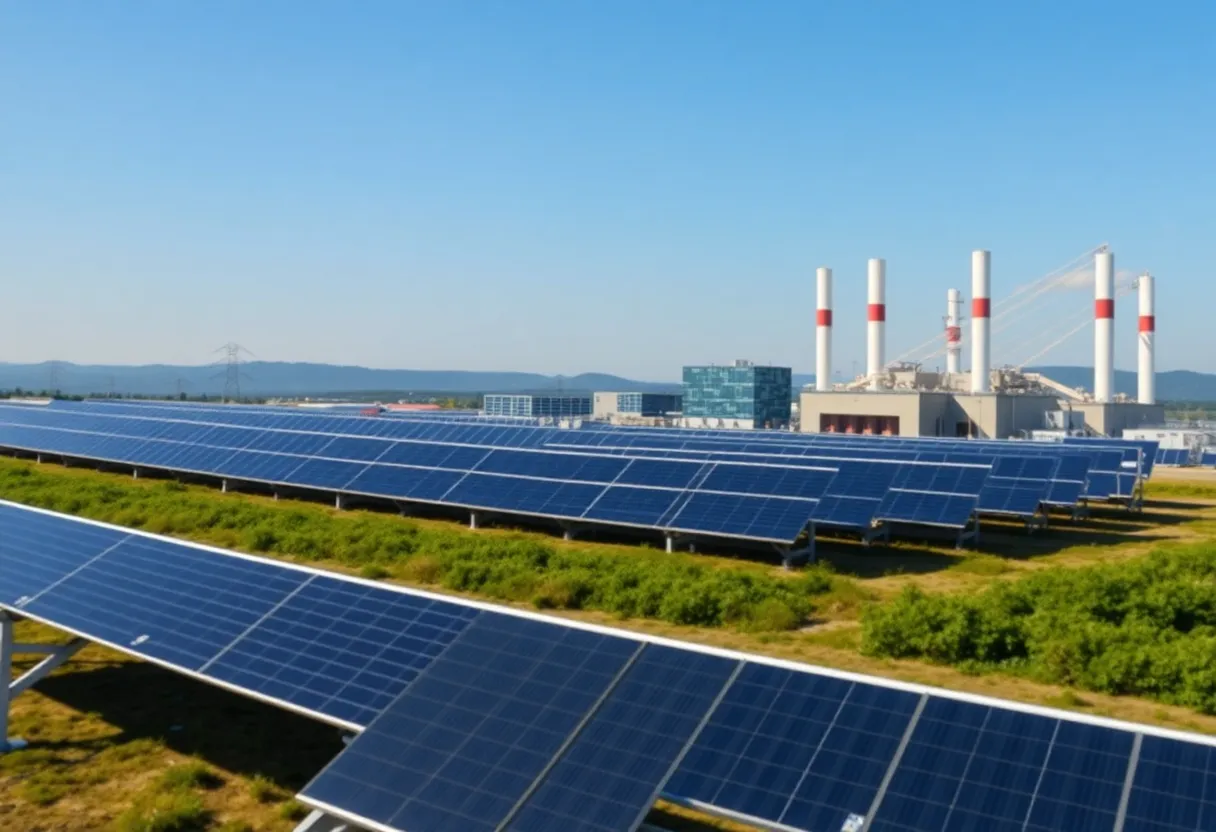News Summary
Recent testing by Savannah Riverkeeper has detected concerning levels of PFAS in every soil and surface water sample taken from the Savannah River basin. The presence of these ‘forever chemicals’ poses significant health risks, prompting the City of Savannah to file a lawsuit against several chemical manufacturers. Local leaders and health advocates are calling for increased testing and remediation efforts as contamination continues to threaten public health and the environment.
Savannah, Georgia – Recent testing by the nonprofit organization Savannah Riverkeeper has revealed alarming levels of contamination in the Savannah River basin, with every one of the nearly 30 soil and surface water samples taken over the past two years containing PFAS, or perfluoroalkyl and polyfluoroalkyl substances. Tonya Bonitatibus, the executive director of Savannah Riverkeeper, indicated that all samples tested thus far have shown the presence of PFAS, marking a serious environmental health concern for the area.
PFAS are a group of approximately 15,000 chemicals that have been manufactured in the United States since the 1940s. These substances are commonly used in a range of everyday products, including non-stick cookware, water-repellent clothing, and firefighting foams. They have earned the nickname “forever chemicals” due to their resistance to chemical breakdown, leading to persistent environmental pollution.
Health studies have linked PFAS exposure to several serious health risks. Notably, they can disrupt functions of the liver, thyroid, and nervous systems, and they can take an estimated five years to reduce by half in the human body. Research from the University of California Keck School of Medicine has shown that communities with drinking water contaminated by PFAS see up to a 33% higher cancer rate.
Compounding the issue, the City of Savannah has filed a lawsuit against numerous chemical manufacturers, including major entities like 3M and DuPont. The lawsuit alleges that these companies have knowingly polluted the local water supply by producing and discharging PFAS-laden products. This case, moved to the U.S. District Court of South Carolina, is part of a multi-district litigation that encompasses over 10,000 cases. According to reports, a third of the implicated companies submitted General Denials to the accusations in early August.
Recent developments have further complicated the regulatory landscape surrounding PFAS. The U.S. Environmental Protection Agency (EPA) recently retracted its support for drinking water standards concerning PFAS. In Georgia and South Carolina alone, over 4,600 facilities are discharging waste into the Savannah River basin. Many of these facilities are required to self-report on water quality, but they are not mandated to provide information on PFAS levels.
In light of these escalating issues, Savannah Riverkeeper has increased its monitoring efforts after identifying significant gaps in PFAS testing. There are 48 industrial and municipal outfalls contributing to pollution between Augusta and Savannah, raising alarm over water sources, including Abercorn Creek, which supplies nearly a quarter of Savannah’s drinking water. Savannah Riverkeeper has tested 55 different types of PFAS, with testing costs reaching $75 per sample; however, specific details regarding locations and contamination levels have yet to be disclosed.
The EPA has previously required all PFAS manufacturers and importers to submit information by July 2023, a deadline that has now been extended to October 2026. Furthermore, the agency began regulating six different types of PFAS in drinking water as of April 2022, mandating that water utilities conduct testing for these contaminants. However, legal challenges have arisen from trade organizations contesting the regulations.
Historically, companies such as 3M and DuPont have faced substantial settlements, amounting to billions of dollars, due to PFAS contamination. Savannah’s ongoing lawsuit aims to secure funding for a filtration system that could mitigate the PFAS in drinking water. Local officials warn that implementing such a system could be both costly and complicated.
Savannah Mayor Van Johnson has classified PFAS as a “public nuisance,” acknowledging the chemical’s widespread contamination. City officials have proposed that residents dispose of older non-stick cooking pans, which may release PFAS upon degradation. Concerns have been voiced by Alderman Nick Palumbo regarding the long-term public health impacts of PFAS, specifically noting associations with low birth weights, miscarriages, and various cancers.
As Savannah grapples with this environmental crisis, the ramifications of PFAS contamination will continue to unfold, prompting city leaders and health advocates to pursue further testing, clearer regulations, and effective remediation efforts.
Deeper Dive: News & Info About This Topic
HERE Resources
Savannah Files Lawsuit Against PFAS Polluters
Additional Resources
- Savannah Now
- Wikipedia: PFAS
- WRDW
- Google Search: PFAS contamination Savannah
- WSAV
- Google Scholar: PFAS health risks
- WJCL
- Encyclopedia Britannica: Persistent Organic Pollutants
- WTOC
- Google News: Savannah PFAS lawsuit

Author: STAFF HERE SAVANNAH WRITER
The represents the experienced team at HERESavannah.com, your go-to source for actionable local news and information in Savannah, Chatham County, and beyond. Specializing in "news you can use," we cover essential topics like product reviews for personal and business needs, local business directories, politics, real estate trends, neighborhood insights, and state news affecting the area—with deep expertise drawn from years of dedicated reporting and strong community input, including local press releases and business updates. We deliver top reporting on high-value events such as Savannah Music Festival, St. Patrick's Day Parade, and Savannah Jazz Festival. Our coverage extends to key organizations like the Savannah Area Chamber of Commerce and United Way of the Coastal Empire, plus leading businesses in aerospace, education, and logistics that power the local economy such as Gulfstream Aerospace, Savannah College of Art and Design, and Colonial Group. As part of the broader HERE network, including HEREAtlanta.com and HEREAugusta.com, we provide comprehensive, credible insights into Georgia's dynamic landscape.



